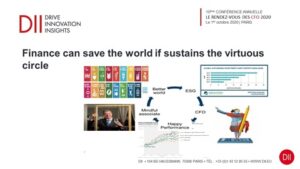“Extra” or “Just” Profit ?

“In a move that surprised investors and political observers alike, Italy’s far-right government led by Prime Minister Meloni announced plans late Monday to slap a 40 percent one-off windfall tax on bank profits.
Italian lenders have been raking in huge benefits from higher interest rates on their loans at a time when ordinary people are struggling with the cost of living.” so Politico summarizes the italian government decision. The authors of the article, Ben Munsters and Hannah Brenton continue reminding us that: “Italy isn’t the first country to raise money from banks — as lenders increasingly find themselves a political target for not passing on profits from higher interest rates.The left-wing government in Spain hit its banks with a windfall tax in November which was expected to raise €3 billion. Hungary, too, under far-right firebrand Viktor Orbán, has targeted its banks.While U.K. lenders aren’t facing a tax, the Conservative government has hauled the banks in to demand they help struggling mortgage-holders and pass on higher savings rates.
Banks are seen as one of the few economic winners as central banks hike interest rates to try to get inflation under control.”
So recently various EU countries recognized that the advantage given to lenders to gaining higher interests rates from adjusting rapidly up interests rates generated “extra” profit.
Governments defined simple measures to evaluate thie “extra” always referring to pre ECB decision to raise interest rate. I am not interested to the mechanism of the calculation but to the principle.
If there is “extra profit” then there is a “right or just profit” that politician,s as representatives elected by the citizen. want to acknowledge as reward for the results and risk taken by a certain industry.
What is interesting is that the decision in Italy is coming from a center right government that in general expectations should defend profit makers and wealthy individuals. The decision has high populistic message content, but if we reflect. it is a sign that relations between government and industries may change. It is a result of the experience during Covid, the global economic impact of Ukrainian war and the concerns on the Climate challenge,
During Covid Governments all over the world have taken over Economy in name of Health of the population. The rules governing the Homo economicus had to be adjusted in the higher and long term interest of the population. Certain industries were considered vital to the economy and could profit of the situation (health care for example), other were considered useful but less vital, other were temporarely closed.
I am not interested in commenting about the rules that were applied to assign the industries to the different categories but I am interested in the logic: the “superfluos” was considered as not vital while everything that could help to prevent, facilitate or cure Covid was vital (for example energy for hospital was vital while energy for restaurants not).
Right or left governments, in various ways then have tried to manage the extra profits generated by an industry that had advantages or restore profit loss to those that had to close.
If we look at these decisions in an implicit way, we see that more and more Governments tend to restrict or influence the “business freedom” of corporation. More frequentlly after Covid and the impact on global economy of The climate challenge is everyday putting in front of us the evidence that economic rules without
In an interesting article in 2015 Colin Mayer talks about Just profit and you can read more on the topic





